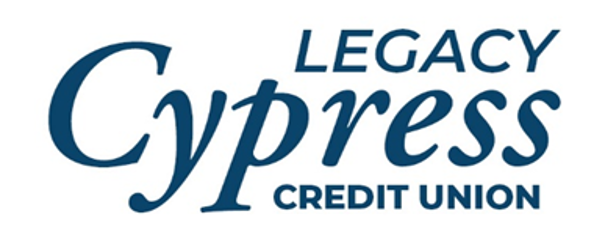20 Great Facts For Picking Business Asset Management Planning
20 Great Facts For Picking Business Asset Management Planning
Blog Article
10 Tips About Trust Settlements For Estate Plans
Here are ten detailed guidelines for trust settlements in estate planning agreements that will aid families, individuals and professionals navigate the process. Each tip comes with an explanation as well as key pros, cons and other details to assist you in assessing and comparing potential outcomes.
1. Make sure you read through the trust document.
Read and understand all the terms of your trust, including any successor trustee designations and distribution instructions.
Benefits: Reduces the chance of miscommunications and legal disputes.
Cons: Legal jargon could be complicated and require a professional to translate.
2. Choose a qualified successor trustee
Tip - Choose someone responsible and impartial who can act in the capacity of trustee following the demise or incapacitating illness of the settlor.
Cons: Doesn't guarantee an efficient trust administration.
Cons: A poor decision could lead to delays, disputes or even breaches of fiduciary duty.
3. All Trust Assets should be inventoried
Tip Make an inventory that lists personal property, real estate and bank accounts.
Cons Con: Inaccurate distribution and tax reporting.
Cons: May be complicated and time-consuming if records are unclear.
4. You can acquire certified death certificates.
Tip : These documents must be completed to begin the trust settlement process, transfer ownership of assets and inform institutions of financial transactions.
Pros: Essential for legal and administrative tasks.
Cons: Processing times and costs may vary based on the jurisdiction in which you are located.
5. Notify all Beneficiaries and Heirs
Tip 1: Be certain to inform all parties affected of the trust's terms, the trust's purpose and the intention to settle.
Pros: Promotes transparency and reduces future disputes.
Cons: Could create tensions within the family due to emotional or financial issues.
6. Contact an Estate Planning Lawyer
Tip - Work with an attorney to make sure that the appropriate procedures are followed and that legal jargon is understood.
Cons: Reduces the risk of litigation and errors.
Cons: Increased costs Particularly for complex estates.
7. Working with an CPA, Tax Advisor
TIP: Trust settlements usually have tax implications (estate, inheritance, income). Tax professionals can help ensure compliance.
Reduces tax liability, and IRS problems.
Cons: The cost of financial consultation.
8. Transfer Titles, Deeds, and Ownership Properly
Change the names of beneficiaries and trusts in all ownership records, including banks, real estate and automobiles.
Benefits: Reduces the risk of legal delays and complications.
Cons: Certain transfers require legal approval by the court and probate clearance.
9. Handle Debts and Liabilities First
Tip: Pay off all debts and taxes before you transfer assets to beneficiaries.
Pros: Ensures compliance with the law and guarantees satisfaction to creditors.
Cons: Reduces the total distributable assets.
10. Get a Tax Identification number (TIN) for your trust
Tips After the death of a trust becomes its own separate tax entity. It'll require the TIN to file their taxes.
Pros: Maintains tax filings in a lawful and tidy way.
Cons: It requires coordination with IRS and possibly a CPA. Follow the recommended settlement trust for website info including online online banking, savings and loans near me, banks for money, bank america, trust fund bank account, 1rst financial bank, banks in san antonio, banks in miami, people bank near me, best banks in florida and more.
Business Banking Accounts In Melbourne: 10 Tips
These 10 tips provide an in-depth guide to banking for business in Melbourne, Florida. Each tip includes a detailed explanation along with pros and cons. These suggestions can help you with everything from choosing the correct bank to optimizing your local business banking experience.
1. Setup Multi-User Controls for Access and Roles
Tip Assigning custom roles for employees or accounting staff will permit them access to accounts.
Pros: Increases accountability and security.
Cons: Some banks do not offer customized user roles.
2. Create an account with a Money Market or Business Savings Account
Tip: Save money into your savings account in order to create a reserve or keep idle capital.
Pros: Earn interest, support financial stability.
Cons: Minimum balances could be high or transfers restricted.
3. Look for banks that accept cash deposits
Request limitations and fees for cash deposits.
Cons: Secure and speedy deposits.
Cons: Some financial institutions charge fees for cash handling at certain levels.
4. Utilize Positive Pay and Fraud Detection Tools
TIP: A lot of banks, including Wells Fargo, offer fraud protection for ACH and also for checks.
Benefits: Reduces the chance of fraudulent withdrawals and unauthorised withdrawals.
Cons They are typically offered as premium accounts or add-ons.
5. Check for FDIC Insurance or NCUA Insurance
Tips: Make sure your deposit accounts are federally insured up to $250,000 for each entity for each bank.
Pros: Financial safety and security as well as compliance.
Cons: Businesses that need to spread cash have larger reserves.
6. Understanding the difference between ACH fees and wire transfer.
Tip: Compare domestic/international wire fees and ACH origination fees if you pay suppliers or contractors electronically.
Pros: Recurring payments that are smooth and easy.
Cons: Fees vary; smaller banks might not be able to support ACH origination.
7. Find a specialist business banker
Tips. Establish a solid connection with a financial advisor who knows your business and understands the goals you're trying to reach.
Pros Advantages: Faster service, expert advice, easier application for loans.
Cons: Larger banks may not provide personal bankers to small-sized companies.
8. Consider business credit card for expense management
Melbourne's banks offer business cards that come with travel or cash-back benefits and rewards.
Pros: Helps build credit for businesses and keeps track of expenses.
Cons: High rate of interest when payment is not made monthly. You might be required to give an assurance.
9. Contact us for information on Community Support Programs.
Tip: Many community banks support local businesses through grants, networking events or through sponsorships.
Pros: Excellent for publicity and goodwill.
Pros: Programs are restricted to specific industries and non-profits.
10. Be prepared with proper documentation
Tip: Bring your EIN or Articles of Incorporation, a business license and operating agreement to open an account.
Advantages: No delays in installation.
Cons: Incomplete documents can stall or block approval for a bank account. Read the recommended trust administration Melbourne FL for more tips including first financial bank customer service, call us bank, top ten banks in the united states, first financial bank texas, bank first online banking, texas capital bank texas, people's bank online banking, community bank auto loan, new online banking, bank of the west login and more.